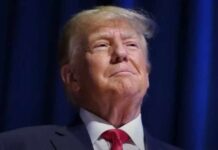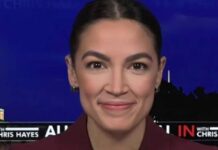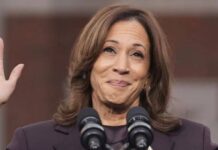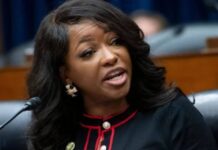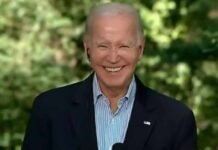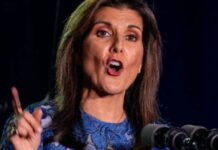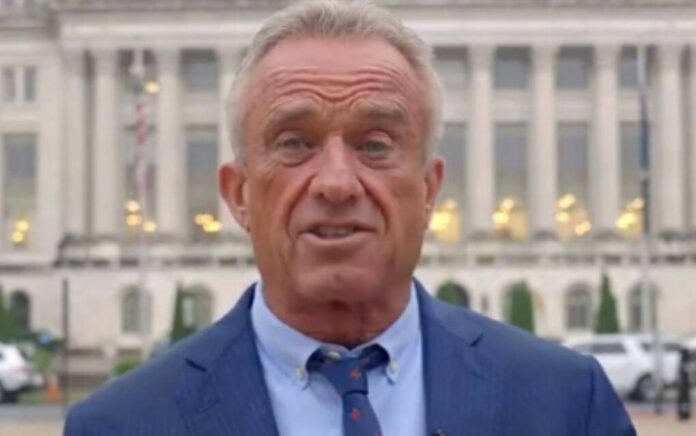
Everyone was waiting for the SCOTUS to weigh in on this critical case. And now we have their answer.
As the Supreme Court drops a decision that has major consequences for the 2024 election.
Supreme Court Blocks RFK Jr.’s Attempt to Exit Michigan, Wisconsin Ballots
The Supreme Court on Tuesday dismissed Robert F. Kennedy Jr.’s appeal to have his name taken off the ballot in Michigan and Wisconsin—two key battlegrounds for the 2024 election.
Kennedy had filed an emergency petition hoping the Court would compel election authorities in the two Midwestern states to remove his name, which remains despite his endorsement of former President Donald Trump.
Although the justices’ votes in the matter were not disclosed, Justice Neil Gorsuch issued a brief dissent specifically addressing Kennedy’s Michigan appeal.
Following the ruling, Kennedy released a statement on X (formerly Twitter), suggesting that election officials in Michigan and Wisconsin were playing politics by keeping him on the ballot. Kennedy has openly supported Trump since August, actively campaigning for him nationwide.
“The Supreme Court has unfortunately today sided with the Secretary of State of Michigan and Wisconsin, both Democrats, to undermine election integrity and leave my name on the ballot in both those states,” Kennedy said in his post. “It is a purely political move in the hope that folks who would have otherwise voted for Trump will throw away their vote by voting for me instead.”
He continued: “Don’t let them undermine this election. Don’t be fooled. I am off the ballot in every other state I have sought to get off of other than Michigan and Wisconsin. So, if you are in Michigan or Wisconsin, please make sure to vote for Donald Trump — DO NOT VOTE FOR ME. Together we will Make America Healthy Again!”
The Supreme Court has unfortunately today sided with the Secretary of State of Michigan and Wisconsin, both Democrats, to undermine election integrity and leave my name on the ballot in both those states. It is a purely political move in the hope that folks who would have…
— Robert F. Kennedy Jr (@RobertKennedyJr) October 29, 2024
Kennedy’s attorneys argued that Michigan’s Secretary of State Jocelyn Benson and the Wisconsin Election Commission had infringed upon his First Amendment rights by mandating his inclusion on the ballot.
They asserted that Benson, by “recertifying the ballot to include Kennedy’s name as a presidential candidate,” had compelled his speech in a manner they deemed unconstitutional.
“A review of the aforementioned facts clearly demonstrates that Secretary Benson has compelled Mr. Kennedy’s speech and, therefore, violated his Constitutional rights,” Kennedy’s legal team stated.
The First Amendment argument found support in a previous dissent from Justices Chad Readler and Amul Thapar when Kennedy’s case was reviewed at the Sixth Circuit Court of Appeals.
Justice Thapar’s opinion had noted the broader implications of the case, writing, “This case presents a question of exceptional importance: Does forcing a person onto the ballot compel his speech in violation of the First Amendment? The repercussions of that question are enormous.”
He added, “If a candidate can’t stop his name from appearing on the ballot, could battleground states put President Joe Biden back on their ballots?”
Both Benson and the Wisconsin Election Commission argued that the timing made it impractical to remove Kennedy from the ballot and that doing so could overwhelm election workers.
In the context of a close race, where recent polls show Trump and Vice President Kamala Harris neck and neck in Michigan and Wisconsin, the Court’s decision adds a layer of uncertainty in two critical states.
Both candidates have already devoted considerable campaign resources to these states, where any disruption could prove consequential as November approaches.
Stay tuned to The Federalist Wire.


